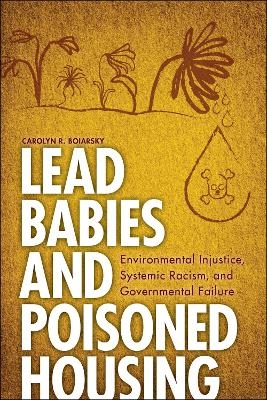
Lead Babies and Poisoned Housing
Environmental Injustice, Systemic Racism, and Governmental Failure
Seiten
2024
Purdue University Press (Verlag)
978-1-61249-947-5 (ISBN)
Purdue University Press (Verlag)
978-1-61249-947-5 (ISBN)
Drawing on historic sources as well as present-day interviews, Lead Babies and Poisoned Housing is a story about systemic racism, environmental injustice, and the failure of government.In 2016, 1,100 mainly minority residents of a low-income housing complex in East Chicago, Indiana, received a letter from the city forcibly evicting them from their homes because a high level of lead was found in the soil under their houses. The residents were given two months to move. Many could not find safe housing nearby. The site was designated by the Environmental Protection Agency as a Superfund site because of the large amount of toxic material on it. More than 1,300 similar sites are located throughout the United States. Over 70 million people live within three miles of one of these sites.
Five years later, the U.S. Department of Housing and Urban Development Office of Inspector General charged three federal agencies—EPA, HUD, CDC—with causing the lead poisoning of children living in the complex. The EPA, responsible for the cleanup, had been aware of the situation for 35 years. The director of the local housing authority admitted to building the complex over a demolished lead smelter. When health issues arose, the housing authority blamed the residents' sanitary habits rather than its own failure to maintain the structures. The Center for Disease Control's testing of blood lead levels was revealed to be faulty. In short, the very agencies that were supposed to protect these people instead neglected, ignored, and blamed them.
But this isn't just a story of victimization; it is also about empowerment and community members insisting their voices be heard. Lead Babies and Poisoned Housing records the human side of what happens when the industries responsible for polluting leave, but the residents remain. Those residents tell their stories in their own words—not just what happened to them, but how they acted in response. We should listen, not only for justice, but as a cautionary tale against repeated history.
Five years later, the U.S. Department of Housing and Urban Development Office of Inspector General charged three federal agencies—EPA, HUD, CDC—with causing the lead poisoning of children living in the complex. The EPA, responsible for the cleanup, had been aware of the situation for 35 years. The director of the local housing authority admitted to building the complex over a demolished lead smelter. When health issues arose, the housing authority blamed the residents' sanitary habits rather than its own failure to maintain the structures. The Center for Disease Control's testing of blood lead levels was revealed to be faulty. In short, the very agencies that were supposed to protect these people instead neglected, ignored, and blamed them.
But this isn't just a story of victimization; it is also about empowerment and community members insisting their voices be heard. Lead Babies and Poisoned Housing records the human side of what happens when the industries responsible for polluting leave, but the residents remain. Those residents tell their stories in their own words—not just what happened to them, but how they acted in response. We should listen, not only for justice, but as a cautionary tale against repeated history.
Carolyn R. Boiarsky is an investigative reporter and academic. She began her career as Statehouse correspondent for United Press International (UPI) in 1964, one of only a few female investigative reporters in the country at that time. She went on to become a television news reporter for the West Virginia CBS affiliate WCHS-TV. She has published in the New Republic, the Progressive, and various newspaper Sunday supplements. Later she became a professor. She currently serves as a professor of English at Purdue University Northwest. Author of five books on teaching writing, she is also the founder of the Northwest Indiana Writing Project.
| Erscheinungsdatum | 17.07.2024 |
|---|---|
| Zusatzinfo | 30 images |
| Verlagsort | West Lafayette |
| Sprache | englisch |
| Maße | 152 x 229 mm |
| Themenwelt | Geisteswissenschaften ► Geschichte ► Allgemeine Geschichte |
| Geisteswissenschaften ► Geschichte ► Regional- / Ländergeschichte | |
| Naturwissenschaften ► Biologie ► Ökologie / Naturschutz | |
| Sozialwissenschaften ► Ethnologie | |
| Sozialwissenschaften ► Politik / Verwaltung ► Staat / Verwaltung | |
| Sozialwissenschaften ► Soziologie | |
| ISBN-10 | 1-61249-947-3 / 1612499473 |
| ISBN-13 | 978-1-61249-947-5 / 9781612499475 |
| Zustand | Neuware |
| Haben Sie eine Frage zum Produkt? |
Mehr entdecken
aus dem Bereich
aus dem Bereich
eine Familiengeschichte der Menschheit
Buch | Hardcover (2023)
Klett-Cotta (Verlag)
49,00 €
Eine wahre Geschichte von Schiffbruch, Mord und Meuterei
Buch | Hardcover (2024)
C.Bertelsmann (Verlag)
25,00 €


